-
 Bitcoin
Bitcoin $118600
-2.59% -
 Ethereum
Ethereum $4282
-0.42% -
 XRP
XRP $3.129
-4.21% -
 Tether USDt
Tether USDt $0.0000
0.01% -
 BNB
BNB $805.4
-1.80% -
 Solana
Solana $174.3
-5.77% -
 USDC
USDC $0.9998
-0.01% -
 Dogecoin
Dogecoin $0.2230
-6.33% -
 TRON
TRON $0.3466
1.70% -
 Cardano
Cardano $0.7745
-5.73% -
 Chainlink
Chainlink $21.37
-3.53% -
 Hyperliquid
Hyperliquid $42.93
-7.25% -
 Stellar
Stellar $0.4324
-4.94% -
 Sui
Sui $3.660
-7.17% -
 Bitcoin Cash
Bitcoin Cash $591.6
2.72% -
 Hedera
Hedera $0.2467
-7.04% -
 Ethena USDe
Ethena USDe $1.001
0.00% -
 Avalanche
Avalanche $22.92
-6.14% -
 Litecoin
Litecoin $118.8
-3.79% -
 Toncoin
Toncoin $3.378
-0.46% -
 UNUS SED LEO
UNUS SED LEO $9.011
-1.15% -
 Shiba Inu
Shiba Inu $0.00001294
-5.81% -
 Uniswap
Uniswap $11.24
0.53% -
 Polkadot
Polkadot $3.870
-6.16% -
 Cronos
Cronos $0.1662
-1.68% -
 Dai
Dai $1.000
0.02% -
 Ethena
Ethena $0.7915
-5.62% -
 Bitget Token
Bitget Token $4.414
-1.65% -
 Monero
Monero $259.3
-3.85% -
 Pepe
Pepe $0.00001120
-8.29%
What is the difference between leverage trading and contract trading of virtual currencies?
Leverage trading amplifies both profits and losses, while contract trading limits potential profits but also reduces the risk of catastrophic losses due to its use of contracts rather than ownership of the underlying asset.
Dec 16, 2024 at 10:43 am
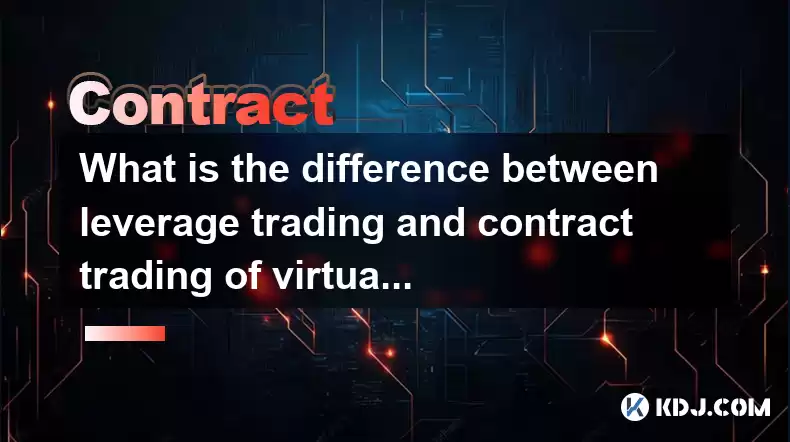
Understanding Leverage and Contract Trading in Cryptocurrency Markets
Introduction
Leverage trading and contract trading are two advanced trading techniques that allow traders to amplify their profits and manage risk in the cryptocurrency markets. While these strategies share similarities, they also exhibit significant differences. This article delves into the distinctions between leverage trading and contract trading, providing a comprehensive guide for crypto traders.
Leverage Trading
- Definition: Leverage trading involves borrowing funds from a broker or exchange to increase the buying power of a trader. This allows them to take on larger positions than they could with their own capital.
Benefits:
- Increased potential for profits: Leverage multiplies the potential profit margin, as traders can control a larger position with a smaller initial investment.
- Flexibility: Traders can adjust the leverage ratio to tailor their risk appetite and profit goals.
- Hedging strategies: Leverage can be used to hedge against price fluctuations and protect against losses.
Risks:
- Amplified losses: Leverage magnifies not only profits but also losses, potentially leading to significant financial setbacks.
- Margin calls: If the underlying asset's price moves against the trader's position, they may receive a margin call and be forced to liquidate their position to cover losses.
- Emotional trading: Leverage can encourage impulsive trading and lead traders to take on excessive risk.
Contract Trading
- Definition: Contract trading in cryptocurrency markets involves buying or selling contracts that represent the underlying asset. These contracts allow traders to speculate on future price movements without taking ownership of the actual cryptocurrency.
Types of Contracts:
- Futures contracts: Agreements to buy or sell a specific amount of cryptocurrency at a predetermined price and date in the future.
- Perpetual contracts: Similar to futures contracts but without an expiration date, allowing traders to hold positions indefinitely.
Benefits:
- Leverage: Contract trading offers leverage options, enabling traders to control larger positions with a smaller initial investment.
- Speculation opportunities: Traders can profit from both rising and falling prices by taking long (buy) or short (sell) positions.
- Hedging risk: Contracts can be used to manage risk by locking in future prices or offsetting exposure to price volatility.
Risks:
- Limited profits: Unlike leverage trading, contract trading limits the potential profit to the difference between the contract price and the underlying asset's price at expiration.
- Variable fees: Contract trading involves various fees, including trading fees, maker/taker fees, and financing rates.
- Margin requirements: Traders are required to maintain a certain amount of margin to cover potential losses, which can restrict their trading activities.
Key Differences between Leverage Trading and Contract Trading
1. Asset Ownership:
- Leverage Trading: Traders do not own the underlying asset but rather borrow funds to increase their buying power.
- Contract Trading: Traders enter into contracts that represent a claim on the underlying asset but do not take ownership of it.
2. Potential Profits and Losses:
- Leverage Trading: Both profits and losses are amplified by the leverage ratio used.
- Contract Trading: Profits are limited to the difference between the contract price and the underlying asset's price; losses are dependent on the contract type and duration.
3. Contract Expiration:
- Leverage Trading: Traders can hold positions until they manually close them.
- Contract Trading: Futures contracts expire on a predefined date, while perpetual contracts do not have an expiration date.
4. Fees:
- Leverage Trading: Usually involves interest charges for borrowing leverage.
- Contract Trading: Involves trading fees, maker/taker fees, and financing rates, which vary between exchanges.
5. Margin Requirements:
- Leverage Trading: Requires a specific amount of margin to cover potential losses.
- Contract Trading: Margin requirements vary depending on the contract type, leverage used, and exchange regulations.
Disclaimer:info@kdj.com
The information provided is not trading advice. kdj.com does not assume any responsibility for any investments made based on the information provided in this article. Cryptocurrencies are highly volatile and it is highly recommended that you invest with caution after thorough research!
If you believe that the content used on this website infringes your copyright, please contact us immediately (info@kdj.com) and we will delete it promptly.
- Dogecoin, Presale, Surge: Riding the Meme Coin Wave
- 2025-08-12 11:10:12
- Dogecoin, Tron, and the ROI Reality Check: What's a Crypto Investor to Do?
- 2025-08-12 11:15:12
- Ethereum Layer-2 Scaling Competition Heats Up as ETH Breaks $4K
- 2025-08-12 10:30:12
- China Regulation, Stablecoins, and BNB Presale: Navigating the Crypto Landscape
- 2025-08-12 11:30:12
- Meme Coins, Investment, and Token Burns: What's Hot in 2025?
- 2025-08-12 10:30:12
- China's National Security Alarm Bells Ring Over Worldcoin's Iris Scans
- 2025-08-12 11:35:12
Related knowledge
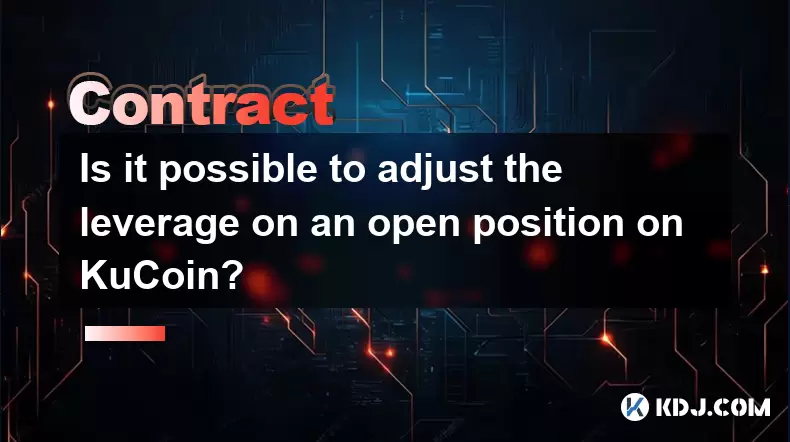
Is it possible to adjust the leverage on an open position on KuCoin?
Aug 09,2025 at 08:21pm
Understanding Leverage in KuCoin Futures TradingLeverage in KuCoin Futures allows traders to amplify their exposure to price movements by borrowing fu...

What cryptocurrencies are supported as collateral on KuCoin Futures?
Aug 11,2025 at 04:21am
Overview of KuCoin Futures and Collateral MechanismKuCoin Futures is a derivatives trading platform that allows users to trade perpetual and delivery ...
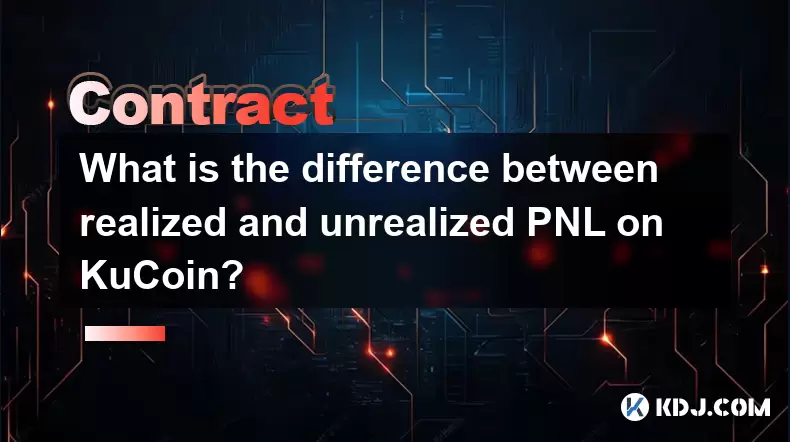
What is the difference between realized and unrealized PNL on KuCoin?
Aug 09,2025 at 01:49am
Understanding Realized and Unrealized PNL on KuCoinWhen trading on KuCoin, especially in futures and perpetual contracts, understanding the distinctio...

How does KuCoin Futures compare against Binance Futures in terms of features?
Aug 09,2025 at 03:22am
Trading Interface and User ExperienceThe trading interface is a critical component when comparing KuCoin Futures and Binance Futures, as it directly i...
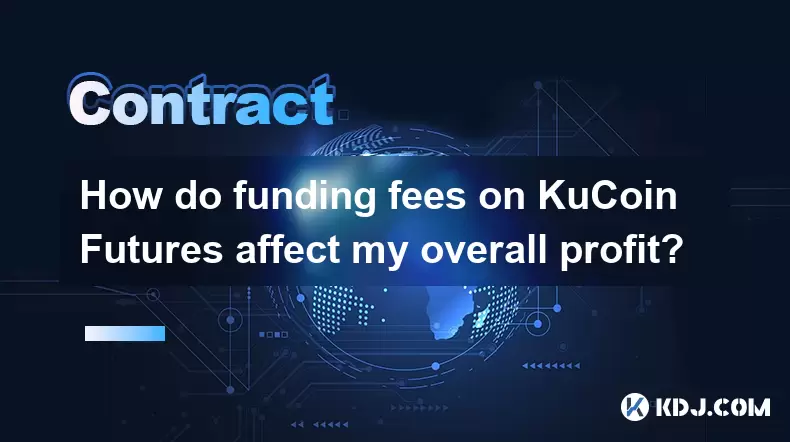
How do funding fees on KuCoin Futures affect my overall profit?
Aug 09,2025 at 08:22am
Understanding Funding Fees on KuCoin FuturesFunding fees on KuCoin Futures are periodic payments exchanged between long and short position holders to ...
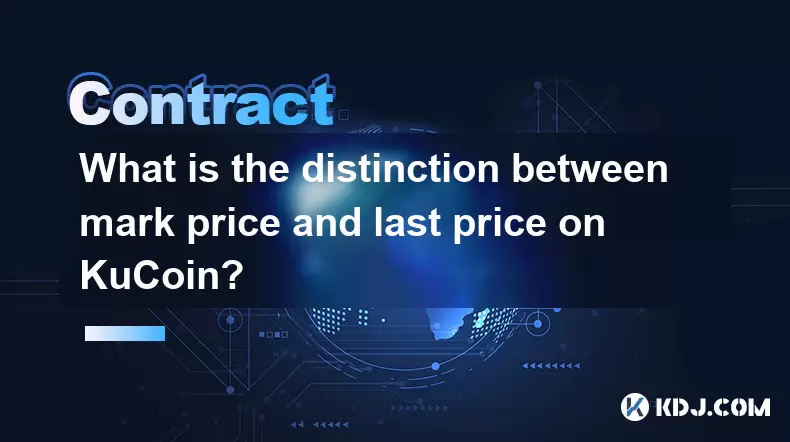
What is the distinction between mark price and last price on KuCoin?
Aug 08,2025 at 01:58pm
Understanding the Basics of Price in Cryptocurrency TradingIn cryptocurrency exchanges like KuCoin, two key price indicators frequently appear on trad...

Is it possible to adjust the leverage on an open position on KuCoin?
Aug 09,2025 at 08:21pm
Understanding Leverage in KuCoin Futures TradingLeverage in KuCoin Futures allows traders to amplify their exposure to price movements by borrowing fu...

What cryptocurrencies are supported as collateral on KuCoin Futures?
Aug 11,2025 at 04:21am
Overview of KuCoin Futures and Collateral MechanismKuCoin Futures is a derivatives trading platform that allows users to trade perpetual and delivery ...

What is the difference between realized and unrealized PNL on KuCoin?
Aug 09,2025 at 01:49am
Understanding Realized and Unrealized PNL on KuCoinWhen trading on KuCoin, especially in futures and perpetual contracts, understanding the distinctio...

How does KuCoin Futures compare against Binance Futures in terms of features?
Aug 09,2025 at 03:22am
Trading Interface and User ExperienceThe trading interface is a critical component when comparing KuCoin Futures and Binance Futures, as it directly i...

How do funding fees on KuCoin Futures affect my overall profit?
Aug 09,2025 at 08:22am
Understanding Funding Fees on KuCoin FuturesFunding fees on KuCoin Futures are periodic payments exchanged between long and short position holders to ...

What is the distinction between mark price and last price on KuCoin?
Aug 08,2025 at 01:58pm
Understanding the Basics of Price in Cryptocurrency TradingIn cryptocurrency exchanges like KuCoin, two key price indicators frequently appear on trad...
See all articles

























































































